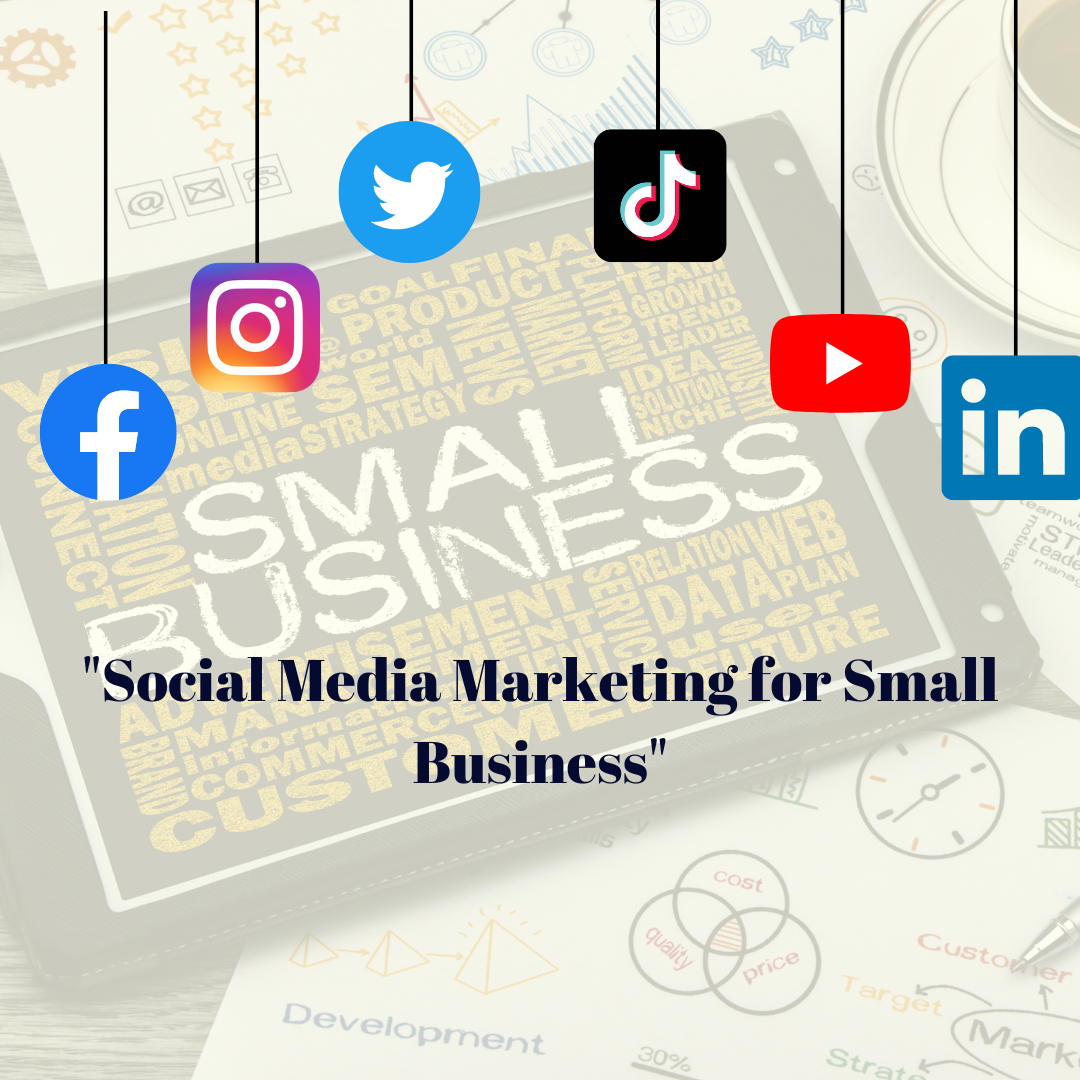Social Media Marketing for Small Business
Feb 12, 2023
Social media marketing is a powerful tool for small businesses to reach and engage their target audience. By creating a strong online presence and building relationships with customers and prospects, small businesses can drive brand awareness, generate leads, and increase sales.
Here are some best practices for small business social media marketing:
- Define your goals: Before you start using social media for your business, it's important to define what you hope to achieve. Some common goals for small business social media marketing include increasing brand awareness, generating leads, and improving customer engagement.
- Choose the right platforms: Not all social media platforms are created equal. Some platforms may be more suitable for your business than others, depending on your target audience, goals, and resources. For example, if your business is B2B-focused, LinkedIn may be a more appropriate platform than Instagram.
- Create a content strategy: A content strategy will help you plan and organize your social media content. This includes identifying the topics you want to cover, the type of content you want to create (e.g. blog posts, infographics, videos), and the frequency of your posts.
- Build a following: Building a large following on social media takes time, but it's an important part of building a strong online presence. Start by engaging with your existing network, including friends, family, and current customers. You can also use paid advertising to reach a wider audience.
- Engage with your audience: Engagement is key to building relationships on social media. Respond to comments, share user-generated content, and participate in relevant discussions. This will help you build trust and credibility with your audience.
- Use visuals: Visual content, such as images and videos, is more engaging than text-based content. Consider including visuals in your social media posts to help your content stand out and improve engagement.
- Track your results: It's important to track your results to see what's working and what's not. Use tools like Google Analytics and social media analytics to measure engagement, reach, and conversions.
- Advertise: Paid advertising on social media can help you reach a wider audience and drive more traffic to your website. Some popular advertising options include Facebook ads, Instagram ads, and LinkedIn ads.
Social media marketing is an effective way for small businesses to reach and engage their target audience. By following these best practices and tracking your results, you can build a strong online presence, generate leads, and drive sales for your business.
Social media marketing is an essential component of a comprehensive marketing strategy for small businesses. Here are some of the key benefits of using social media for small business marketing:
- Increased brand awareness: Social media provides small businesses with a platform to reach a large and diverse audience, which can help increase brand awareness and recognition.
- Customer engagement: Social media provides small businesses with an opportunity to engage directly with their customers and build relationships with them. This can lead to increased customer loyalty and advocacy.
- Cost-effective: Compared to traditional forms of marketing, social media marketing is relatively cheap and allows small businesses to reach a large audience with a relatively small budget.
- Targeted advertising: Social media platforms offer targeted advertising options that allow small businesses to reach their ideal target audience based on demographics, interests, behaviors, and location.
- Customer insights: Social media provides small businesses with valuable insights into their customers' needs, preferences, and behaviors, which can inform product and service development and marketing efforts.
- Increased website traffic: Social media can drive traffic to a small business's website, which can help increase conversions and sales.
- Competitive advantage: By using social media, small businesses can stay ahead of their competitors and position themselves as leaders in their industry.
- Improved customer service: Social media provides a platform for small businesses to respond to customer inquiries, complaints, and feedback in real time, which can help improve customer satisfaction and build trust.
- Increased reach: Social media allows small businesses to reach beyond their local audience and target customers on a national or even international scale.
- Measurable results: Social media platforms provide small businesses with detailed analytics that allow them to track the success of their marketing efforts and make data-driven decisions.
To get the most out of social media marketing, small businesses need to have a well-thought-out strategy and be consistent in their efforts. This includes regularly creating and sharing high-quality, engaging content, interacting with followers, and monitoring and adjusting their efforts based on data and insights.
Social media marketing can be time-consuming and requires a dedicated effort, but the benefits it provides make it a valuable investment for small businesses. With the right approach and the use of effective tools and techniques, small businesses can effectively leverage social media to reach their marketing goals and grow their business.
Related
-
Jul 24, 2023
Harnessing the Power of AI; Transforming Small Businesses
-
Jun 25, 2023
Revolutionizing Small Business: Unleashing the Power of Chat GPT.
-
May 31, 2023
Metaverse In Details
-
May 16, 2023
Artificial Intelligence (AI) For Small Businesses
-
Apr 19, 2023
Digital marketing road map for a law firm
Recent News
-
May 4, 2022
Stakeholder emphasis on improving the 'Digital Nepal Framework'
-
Mar 29, 2022
E-commerce going strong despite reopening of street markets
-
Feb 7, 2022
E-commerce shines as pandemic bites
-
Feb 7, 2022
Daraz launches ‘Celebrate Love’ campaign
-
Feb 7, 2022
7 Social Commerce Tips & Who’s Doing It Right
-
Jul 12, 2021
Growth of Internet in Nepal


